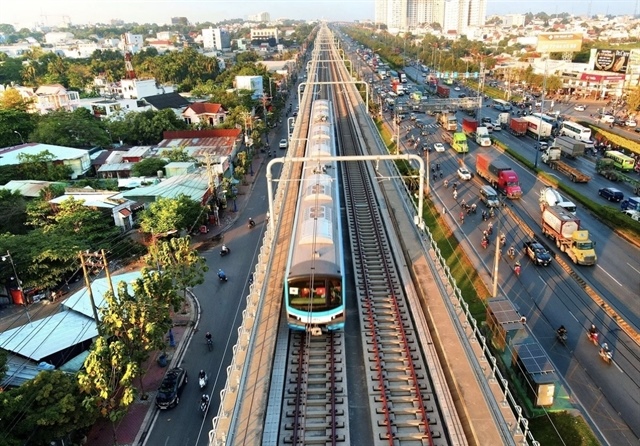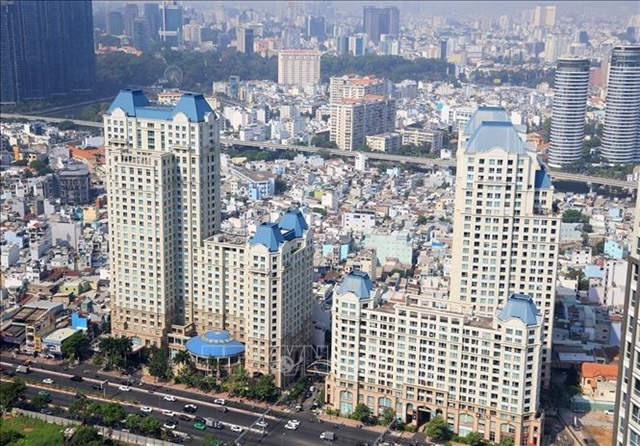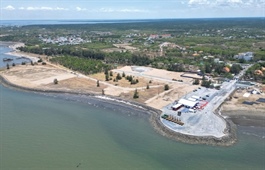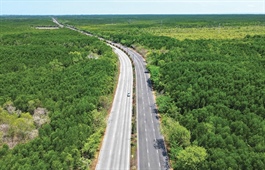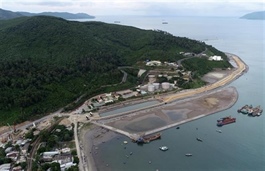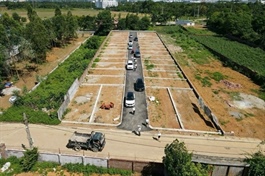Proposed 20% tax on real estate profits sparks concerns
Proposed 20% tax on real estate profits sparks concerns
A proposal to impose a 20-per-cent tax on profits from real estate transfers could create negative impacts on the housing market and overall accessibility for homebuyers.
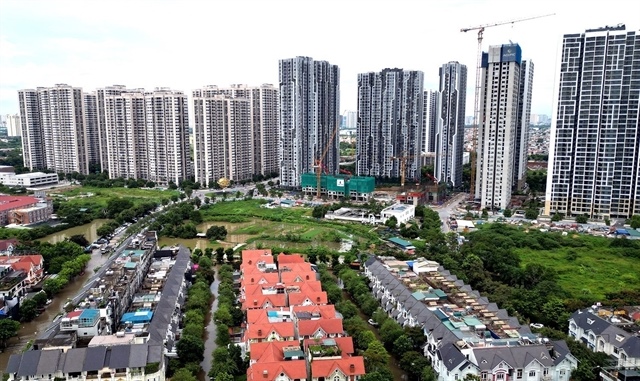
The Ministry of Finance has proposed two methods for calculating taxes on real estate transfers, depending on the availability of transaction data. —VNA/VNS Photo |
During the amendment of the Personal Income Tax Law, the Ministry of Finance has proposed two methods for calculating taxes on real estate transfers, depending on the availability of transaction data. The methods aim to reflect the realities of property transactions and improve tax collection efficiency.
Specifically, for the case that has available data on the trading price and relevant fees or charges, each property transaction is imposed personal income tax (PIT) at 20 per cent on the taxable income.
In case data cannot be verified, a simpler two per cent tax rate on the total transaction value is applied.
Under the current regulations, individuals pay a flat two per cent tax rate on the transaction value, regardless of whether the transaction yields a profit. This often leads to under-reporting of sale prices, to reduce the tax payable, causing losses to the State budget and a lack of transparency in the real estate market.
Finance Minister Nguyễn Văn Thắng has emphasised that the first method aligns with the fundamental principles of income taxation by ensuring tax is levied on actual gains.
However, the method’s effectiveness hinges on two critical conditions: a comprehensive and accurate database of land transaction histories and clear legal guidance on costs that can be deducted.
Currently, the taxation department maintains a database that allows searches for land plot and taxpayer transaction histories dating back to 2018.
However, ensuring buyers and sellers declare true transaction values remains a challenge, and building a reliable market price database will require both time and technological tools.
Additionally, identifying and verifying deductible costs in property transfers is complicated. Some expenses - such as land purchase prices, construction, repairs and administrative fees - are straightforward. Others are more ambiguous, including brokerage fees, loan interest, compensation payments, and other miscellaneous costs.
In many cases, especially involving inherited or donated properties, determining the original cost basis is difficult or impossible. The cases would have inaccurate tax declarations and difficulty in assessing taxable income.
A resident in Hà Nội, Hoàng Minh Ngọc, said a home may be held for decades before resale, during which countless expenses, often without receipts, are incurred. These include renovations, maintenance and financing costs, which are typically difficult to document and thus may not be recognised when calculating taxable profits.
The Finance Minister believes that the tax could curb speculation by professional real estate traders, helping moderate market volatility.
However, he also warns that sellers are likely to pass the tax burden on to buyers, pushing property prices even higher.
Unless someone is in urgent need of cash, they will wait to sell, leading to a situation of having a supply, but it is inaccessible in practice, he said.
The southern regional director at Batdongsan.com.vn, Đinh Minh Tuấn, said that accurately determining a property's input cost, especially for long-held homes, would be challenging for tax authorities.
“Costs like brokerage fees, renovations, repairs and interest payments are rarely documented thoroughly,” he said. “A property might show little to no real profit, yet the owner could still face a substantial tax bill.”
For investors, any new tax would simply be added to the selling price, along with brokerage fees, contributing to further price increases, said Tuấn.
So, he warned that it could incentivise under-the-table transactions, reducing transparency and leading to lost revenue for the government.
For end-users - particularly first-time homebuyers - the proposed tax could raise property prices, making it harder to access housing, he said.
Việt Nam currently maintains one of the lowest real estate tax rates in the region, with no tax on profits and overall real estate taxes below 10 per cent. Experts argue that while reform is necessary, it must be balanced and supportive of market development.
Real estate expert Nguyễn Văn Đính proposed reducing the personal income tax rate on real estate transfers to a low rate of 0.5 per cent, for example, while retaining the current tax calculation method based on declared transaction prices.
Such a change would encourage more accurate declarations, helping the government gather reliable market data and develop an accurate land pricing system.
- 07:57 09/05/2025


